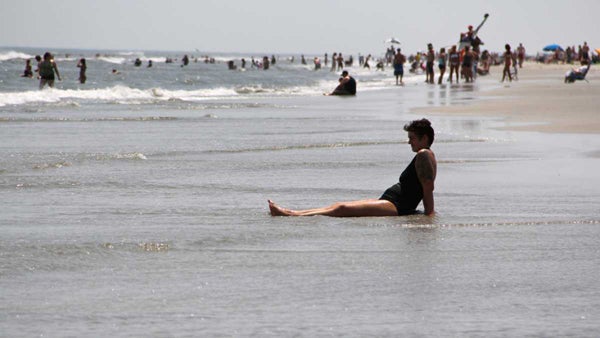The Pulse: The science of five everyday things

Acute vocal fold hemorrhage in a young
WHYY’s The Pulse celebrates its first birthday this week, in a celebration topped off by a live broadcast on Thursday. On Friday at noon, join a live Twitter chat with members of The Pulse taking your questions and comments on a year of stories about health, science and innovation. RSVP for the live event here. Join the Twitter chat at noon on Friday, Dec. 5, by using #PulseChat.
All week on NewsWorks, we’re taking a look back at the best of the first year of The Pulse. From the scientific singing practices of “vocal athletes” to the predictability of sea temperatures, we take a look at the science of everyday things on our stages, in our kitchens, on roller coasters, at the beach and in the weight room.

1. The science of a healthy career for the hard-living Broadway singer
What’s the normal routine for Broadway singers to maintain their vocal health? The answer might surprise you.
We head to New York University’s Voice Center to look at a few dozen vocal folds, or cords, down in the larynx in the neck to find out how they function and what it takes for high level performers to avoid vocal injury.

2. Science explains changes in water temperature from beach to beach
Have you ever wondered why the water at one beach feels significantly colder than the water at another beach just a couple dozen miles away?
Josh Kohut, a physical oceanographer at Rutgers University, who studies the movement, temperature and physical parameters of our local and global oceans, joined The Pulse to explain the science behind this common temperature variability.

3. Why do we like to be scared
How is it that we can take an emotion as devastating as fear, and get intense enjoyment out of it? It turns out that has a lot to do with how our brains work.
New York University neuroscientist Dr. Joseph LeDoux found that when our bodies receive information from our senses in a threatening situation, like the sound of screeching tires, that information follows two different pathways in the brain.

4. The science of grunting while weightlifting
Is there any benefit to making noises when you lift weights or hit a tennis ball? Or are you just being annoying?
Chris Rodolico and Sinclair Smith, researchers at Drexel University Health Sciences Program, did an experiment to try and answer that very question. Their study won the Biomedical Sciences Award for undergraduates at Drexel Research Day.

5. Baking as a frontal lobe workout: How scientists use their skills at home
A scientist who studies brain development in children and is also the mom of two small kids is sure to have a lot of inner dialogue reviewing her parenting performance. But how is she using that research with her kids on an everyday basis? Hint: It involves cookies.
WHYY is your source for fact-based, in-depth journalism and information. As a nonprofit organization, we rely on financial support from readers like you. Please give today.



